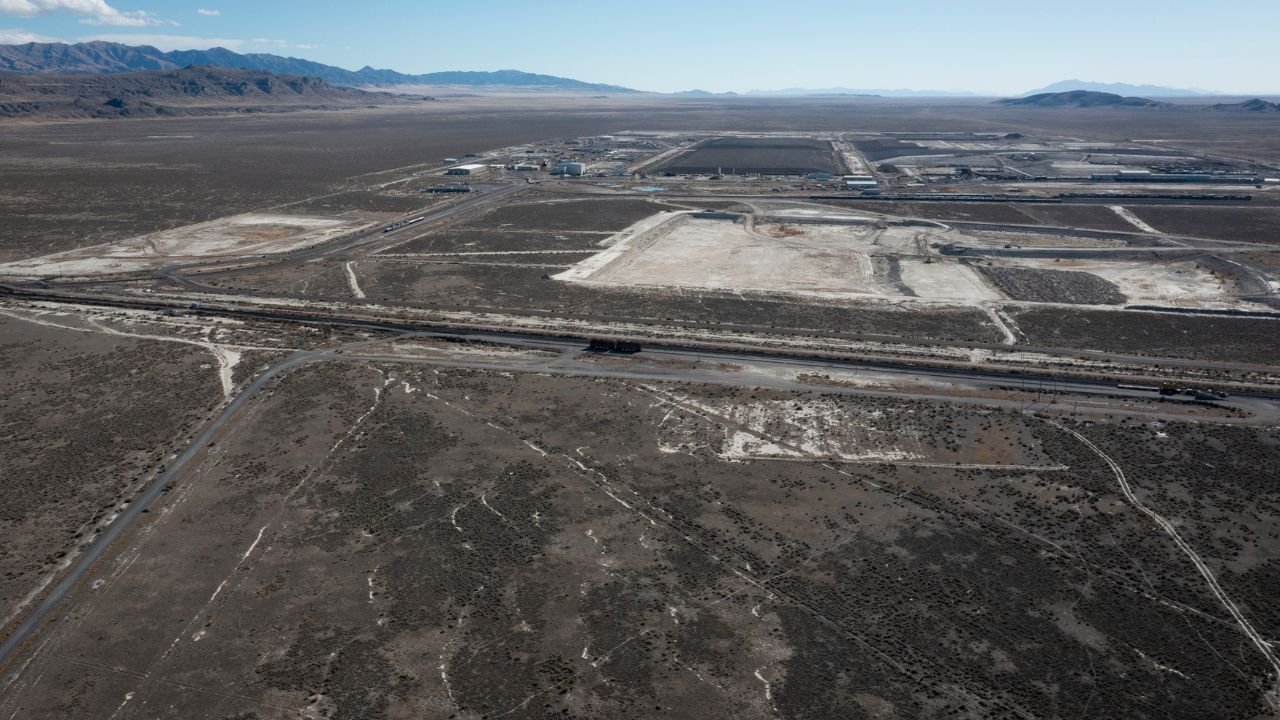Could nuclear waste travel from Ontario, Canada, all the way to a facility just an hour’s drive from Salt Lake City? That’s the big question surrounding the proposal by EnergySolutions to import up to 1.3 million cubic yards of low-level radioactive waste from Canada. This proposal is currently under review by the NorthWest Interstate Compact (the Compact), and it’s raising concerns among local advocacy groups who worry it could pave the way for more hazardous waste shipments.
What is the Waste and Where Would It Go?
The waste in question would be sent to the company’s facility near Clive, Utah (the “Clive facility”). Under U.S. standards, this is classified as Class A waste — the least hazardous category of radioactive waste. Examples include gloves, shoe covers, cleaning materials, and tools used by workers handling radioactive materials.
Yet despite being the lowest-risk grade, opponents such as Healthy Environment Alliance of Utah point out that “any level of radiation can be harmful to humans. There is no safe level, frankly.” They argue the company’s plan to bring in international waste adds complexity in terms of transparency and security.
EnergySolutions maintains that the Canadian waste is the same type of low-level material the facility has handled for over 30 years. They note that although the material comes across the northern border, the facilities in Ontario supply electricity that benefits U.S. customers.
What Are the Concerns of the Public and Advocates?
Although the Compact will hold a special meeting where public comment is allowed, many local residents and advocates say they were not aware of the proposal until late. The Healthy Environment Alliance of Utah said community members only found out through a mailer to a former executive — not through official announcements or meeting notices from the state’s Division of Waste Management and Radiation Control.
Key concerns include:
- Transport safety: The waste would likely travel by rail, raising community worries about accidents or leaks along the route.
- Classification clarity: It remains unclear whether the company will use U.S. standards or Canadian standards to classify the incoming waste.
- Future scope creep: Some believe allowing this import may open the door to other, perhaps more hazardous, types of nuclear waste.
What Do Regulators Say?
A spokesperson for the Utah Department of Environmental Quality (DEQ) said that no additional significant safety measures are required for this project, since the company already has extensive experience disposing of Class A waste and the state regulations are strong. The DEQ will continue to regulate all low-level radioactive waste under its authority.
The Compact’s approval process will require six of its eight member states to agree. Utah has veto power through its delegate, according to Compact Chair Kristen Schwab.
Regulatory Changes and What They Mean
This year the Utah Legislature removed its specific nuclear-waste classification scheme and adopted the federal definitions used by the Nuclear Regulatory Commission (NRC). The NRC currently classifies depleted uranium as Class A. That matters because although there’s no clear indication that the Canadian material includes depleted uranium, one company lobbyist acknowledged that the facility already accepts non-concentrated depleted uranium under its current license — and the licensing expansion would not allow concentrated depleted uranium.
Advocates worry that the shift in classification means the site-specific decision becomes critical: “What happens with aligning to the NRC is now what we’re hearing is that the waste will be determined at the site… and if it meets Class A then it can come into Utah, no matter what,” said Valdez.
Support and the Money Factor
The Legislature also approved changes this year that allow Utah to receive up to $30 million in tax revenue from the company’s expansion application. These funds would go into the Energy Research Fund and support Utah’s broader nuclear-energy ambitions. EnergySolutions noted that the governor, the Legislature, and the state’s public officials are supportive of the proposal.
But as Valdez pointed out: “The governor is in favor, the Legislature is in favor… but there’s no talk about the general public and if they want this waste coming into our country and into our state too.”


